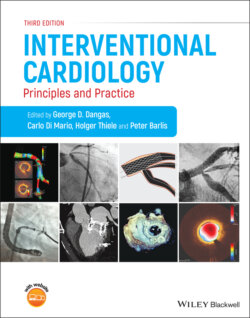Читать книгу Interventional Cardiology - Группа авторов - Страница 345
Sympathomimetic agents
ОглавлениеNorephinephrine has a high affinity for the alpha‐adrenergic receptor and has minor beta‐agonistic effects. Therefore, norepinephrine is a potent vasopressor with limited inotropic effects. Dopamine has a variety of effects depending on the dosage. At low doses (1–2 μg/kg/min) it increases urine output by augmenting renal blood flow and natriuresis [34, 35]. At intermediate doses (5–10 μg/kg/min) dopamine stimulates beta‐1 adrenergic receptors, allowing for an increased stroke volume and an increased heart rate, increasing cardiac output. At high‐doses (>10 μg/kg/min) dopamine predominantly stimulates alpha‐adrenergic receptors, causing vaso‐constriction. A randomized study of 1679 patients with shock (septic, hypovolemic, and cardiogenic) assigned to dopamine or norepinephrine as the first‐line vasopressor showed more arrhythmic events in the dopamine group (24.1% vs 12.4%, p<0.001). A subgroup analysis of patients with cardiogenic shock showed that dopamine was associated with increased 28‐day mortality compared with norepinephrine [36]. An alternative is dobutamine, which is a synthetic catecholamine with strong beta‐1 and beta‐2 receptor affinity. The beta‐2 affinity of dobutamine may cause vasodilation and can cause hypotension.
